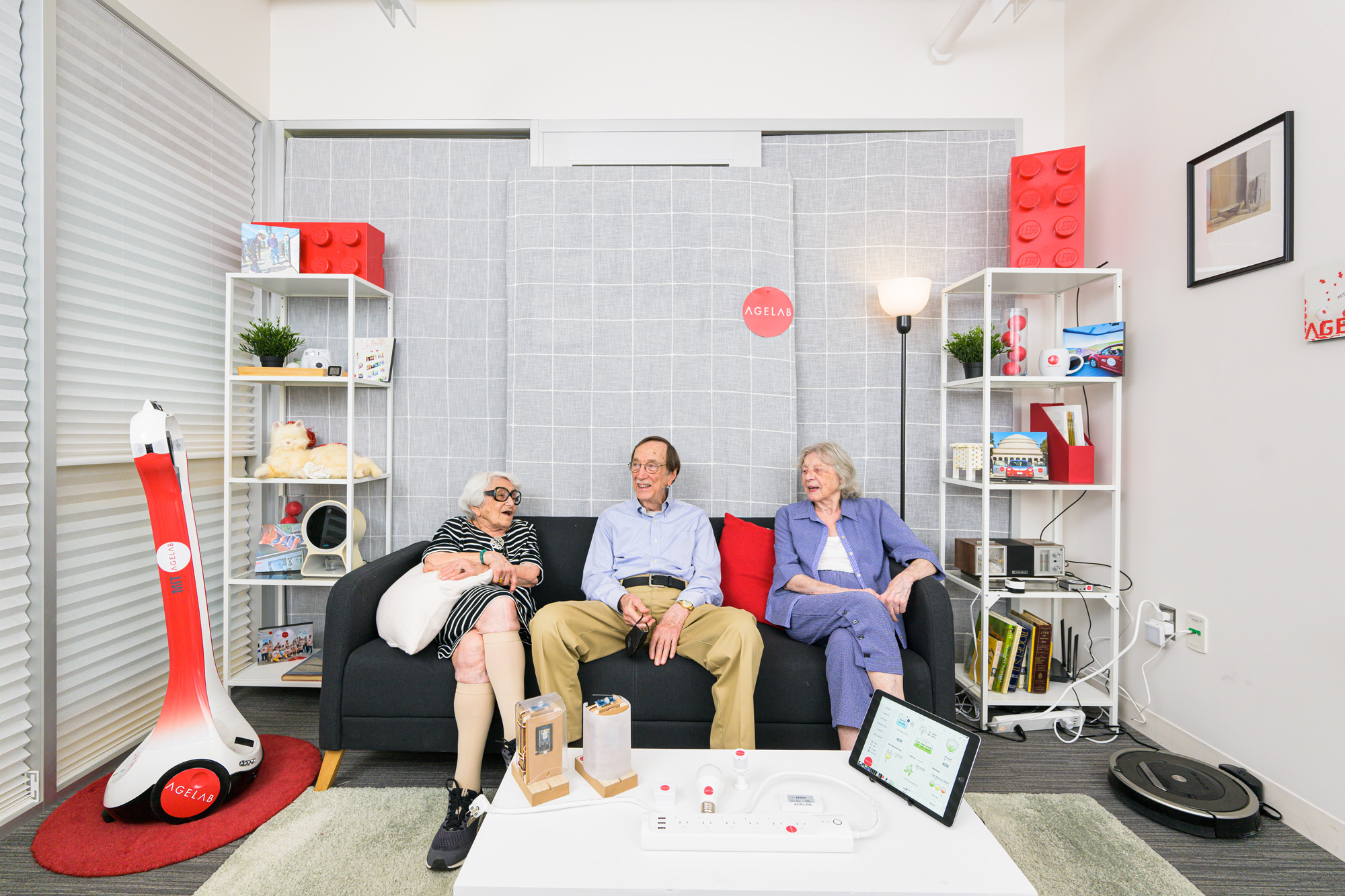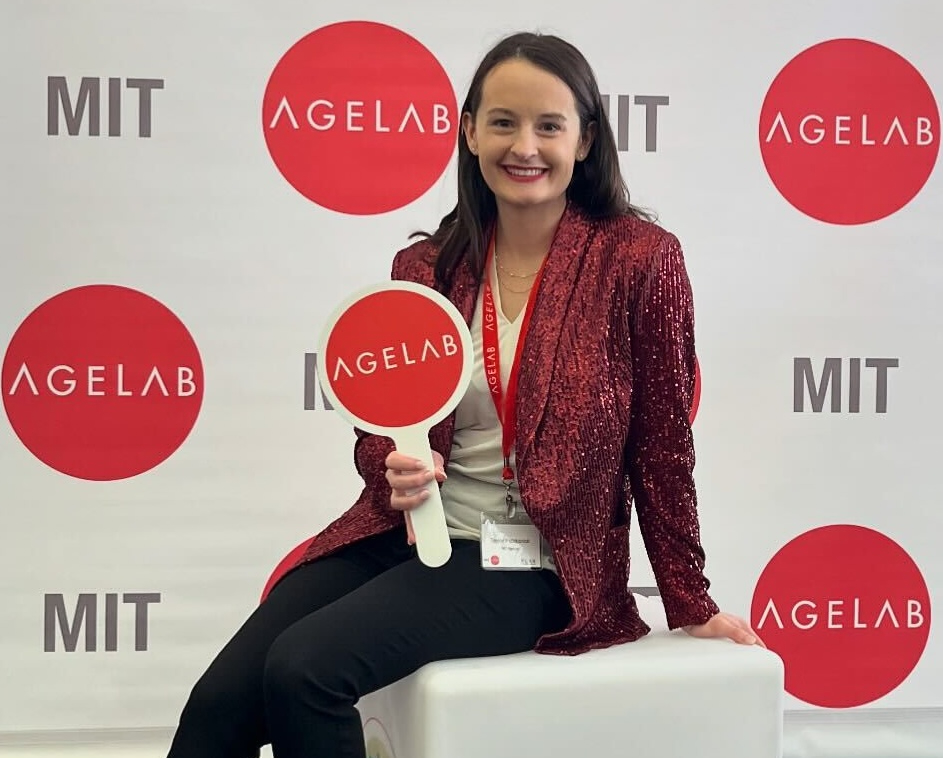Reflecting on ten years of the 85+ Lifestyle Leaders Panel, and remembering Anne Umansky
Earlier this month, I attended the funeral of an AgeLab research participant and a friend, Anne Umansky, who passed at the age of 99.
Anne was among the most voluble members of the AgeLab’s 85+ Lifestyle Leaders panel, showing up to our in-person sessions wearing striking black-frame glasses and fantastic technicolor sweaters, always expressing her thoughts with careful elegance.
Anne’s way with words was the product of a long career as an English instructor at Bunker Hill Community College. I was delighted when one of her relatives shared a blog post Anne had written about working as a personal assistant for Marilyn Monroe and Arthur Miller in 1950s Manhattan. Both as a research participant and a writer, Anne had plenty of lessons to teach us about human fragility and interconnection. Read her post and I think you will agree.
This year (2025) marks a decade of the Lifestyle Leaders Panel. A brainchild of my colleague (now at AARP) Dr. Julie Miller, the panel is an open membership research panel for people aged 85+, who contribute to surveys, focus groups, and workshops on the experiences of aging into the latest phase of life.
Our workshops have covered everything from civic engagement and social robotics to financial fraud to the sharing economy. We have written dozens of papers and oral presentations and supported several student theses through the contributions of members of this panel. But beyond the panel’s usefulness as a treasure trove of information about later life, I think it is a model for mutually beneficial social science research.
The question of how to make social science research more participatory—how to make the research “subjects” more active contributors to the project—is a live topic for practitioners. Researchers have tried to ascertain a measurable benefit, like social connectedness, from people’s participation in panel studies. For social workers like myself, the importance of human relationships is enshrined in our code of ethics—a code that binds us regardless of whether we are engaged in clinical practice or in research.
Managing a panel like the Lifestyle Leaders, as I do with my colleagues, means stewarding a community. It also means bearing witness to the passing of its members. I learned about Anne’s death from another panelist, who wanted to make sure that the community of Lifestyle Leaders was aware of the news. Other panelists followed up to ask me how they could support and get into contact with Anne’s loved ones. I was struck by how this notification and the subsequent requests were evidence of our panel’s evolution from research instrument to a living social network. Put in terms of Klinenberg’s (2018) scholarship, the panel had become a social infrastructure of belonging.
In the days after her passing, my colleagues and I shared memories of Anne – including an event organized by Anne at her senior living community that some AgeLab researchers attended. She had invited a rabbi and a paster to give blessings to the residents’ canes and walkers, to imbue them with personality and sacredness—“a blessing of the fleet.”
Just as it is important to recognize that the Lifestyle Leaders are not just data sources, but people with life stories to tell, it’s also essential to remember that the researchers who study them are people—much younger people—with their own positionality. Often our workshop discussions have been turned around by the panelists—Anne was a frequent culprit in this—who demanded that the researchers contribute their own personal impressions and experiences to the conversation. They remind us that our attempts to stand at an impersonal remove as “moderators” or “administrators” are a performance and an illusion.
The panel has brought older and younger people into dialogue and has held space for the transmission of knowledge. This knowledge becomes a living, breathing archive of shared stories, anthologies, and collective memories within our lab, a site of legacy, and something that outlasts data collection and a pre-determined “study period.”
As the MIT AgeLab 85+ Lifestyle Leaders Panel enters its second decade, I am reminded that the most meaningful research often transcends its original purpose. What began as a project and methodological innovation to better understand the lives of those on the leading edge of aging, has evolved into something more profound: a testament to multigenerational connection, community, and the enduring power of human relationships in social science. The panel has taught me that we can in fact balance rigorous academic inquiry with community building and that these are mutually reinforcing.
Our director Dr. Joe sometimes says the oldest and most fundamental of technologies are stories and storytelling. The stories shared by our Lifestyle Leaders, such as Anne’s reflections on her time working for the Millers, remind us that gerontological research is not simply about studying later life, but about being in relationship with it. As I reflect on the next decade of the panel, I want to express my immense gratitude for the Lifestyle Leaders who have trusted us with their experiences, their insights, and their friendship. In doing so, you are not only advancing the science of how we improve quality of life as we age and creating knowledge that truly matters, but you are enriching our understanding of what it means to be human across the lifespan.

